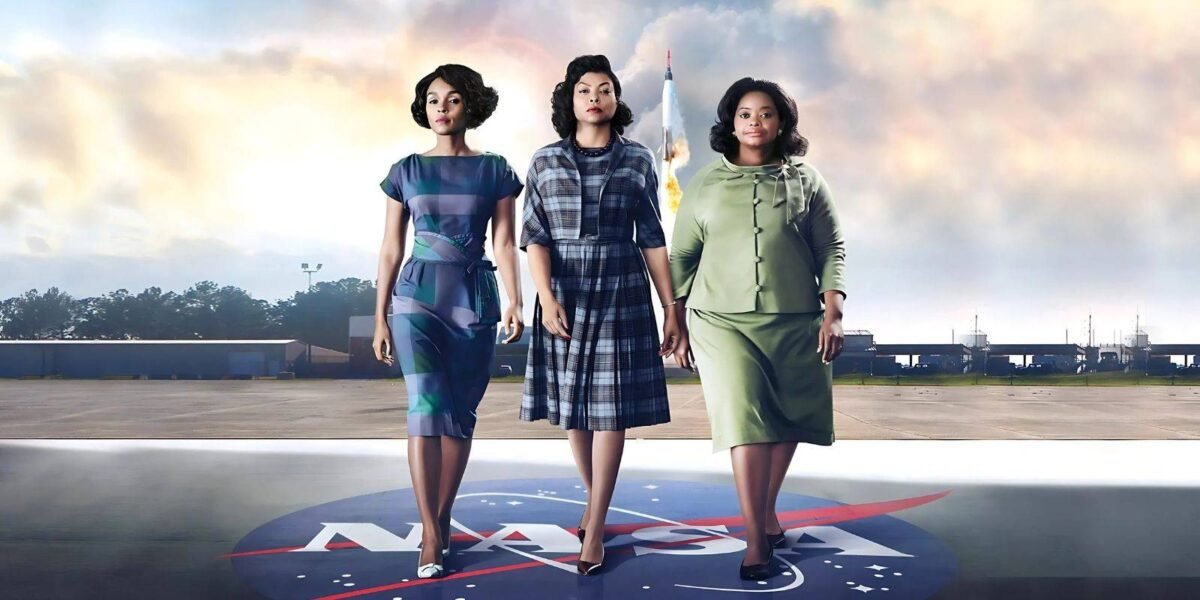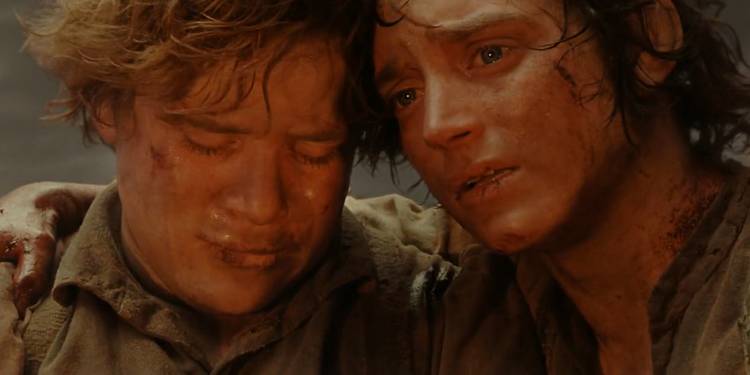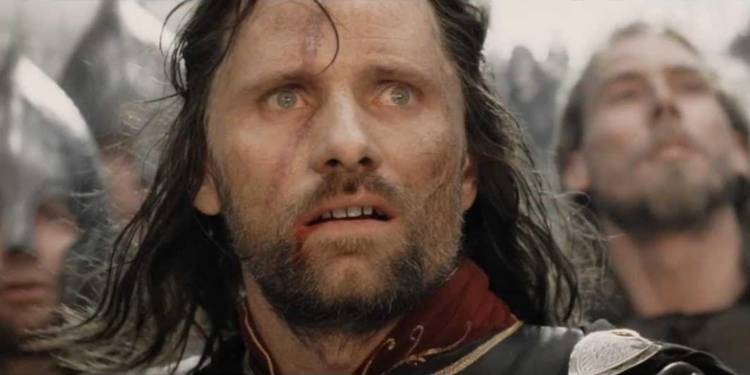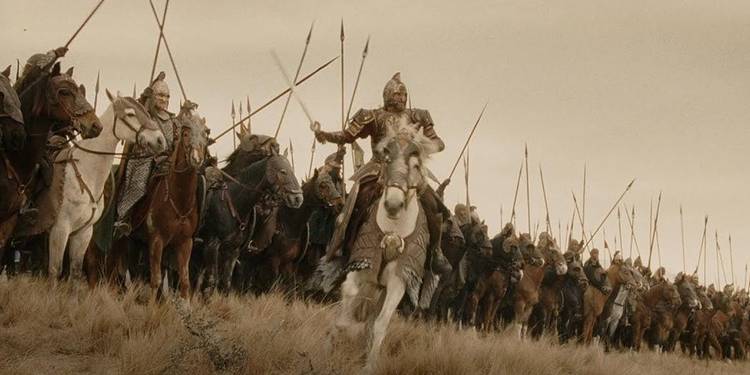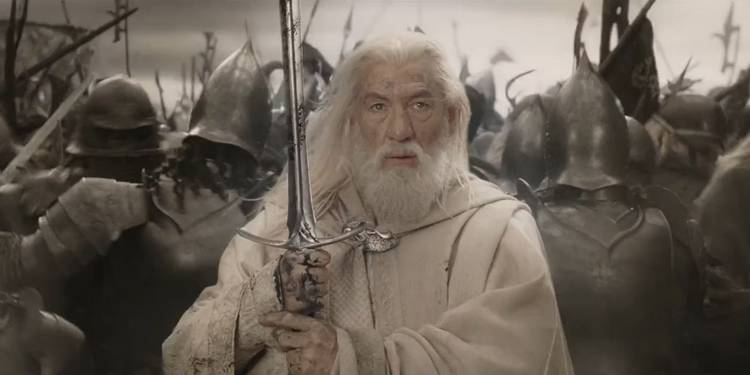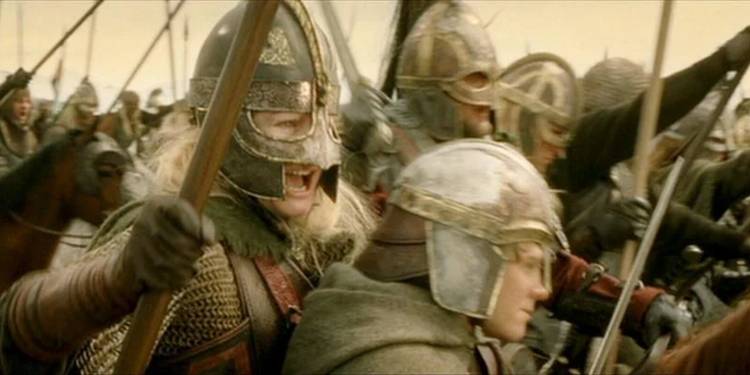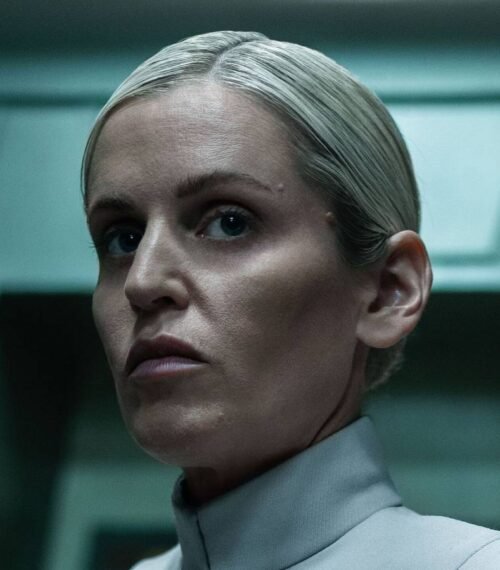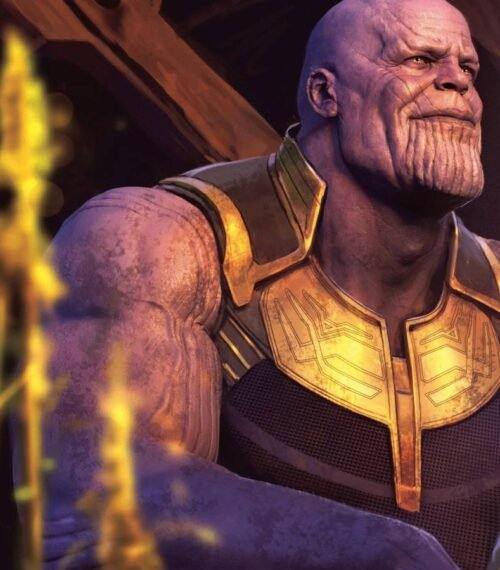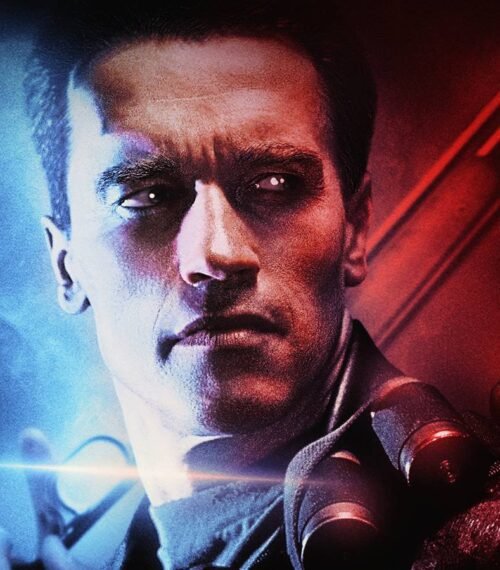To be roused is a complex yet powerful thing. It combines a certain uplifting and optimistic idealism with an energized combativeness, inspiring an empowering zeal that suggests one has found something beautiful worth fighting for. It demands a stirring excitement and a hopeful conviction, and, in the context of cinema at least, it has hardly been showcased more pointedly than it is in these movies of boiling emotional stakes and sharp moral surety.
Ranging from action epics of heroes standing against all-consuming evils to plucky sporting biopics that present the purity and power of the human spirit when it is imbued with belief, these films flaunt a soaring, chest-beating bravado that is impossible to resist. Motivational, invigorating, and endlessly empowering, each of these titles is a rousing triumph of human resolve and willpower.
10 'Dead Poets Society' (1989)
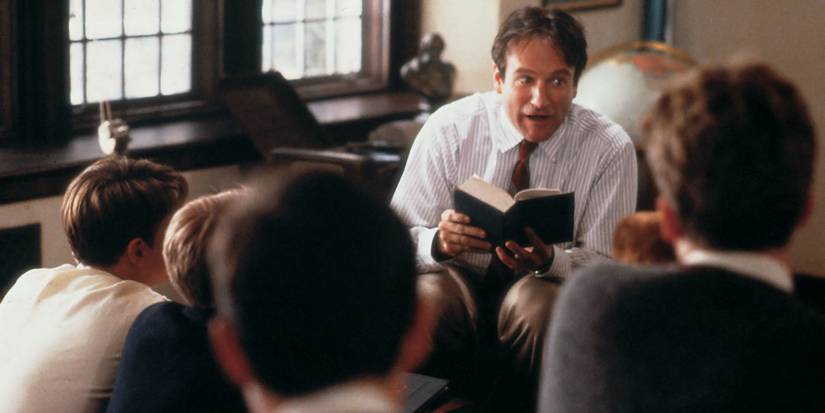
Robin Williams in Dead Poets Society reading a book to students
A true quintessential classic, Dead Poets Society uses its coming-of-age story to underline the ridiculous responsibilities of affluence and champion the importance of individualism. Robin Williams is at his mesmerizing best as John Keating, an English teacher at the preparatory boarding school Welton Academy who confronts the rigid, elitist high-class conformity of his students with manic outbursts of inspired, whimsical wisdom that encourage each of his pupils to find who they truly are and embrace the essence of life.
It is fondly remembered for its uplifting emotional highs, be it the famous “seize the day” monologue or the bittersweet “O Captain! My Captain” finale, but Dead Poets Society finds plenty of its rousing punch in its injustices. From the way Keating’s techniques are scorned by the pompous school board to the eventual termination of his contract, and especially to poor Neil’s (Robert Sean Leonard) tragic fate after his parents' dismissal of his interest in acting, Dead Poets Society stirs with its darkest moments. It creates a rousing defiance of archaic class ideologies that is both heartbreaking and invigorating in its exploration of the value of independence.
9 'Moneyball' (2011)
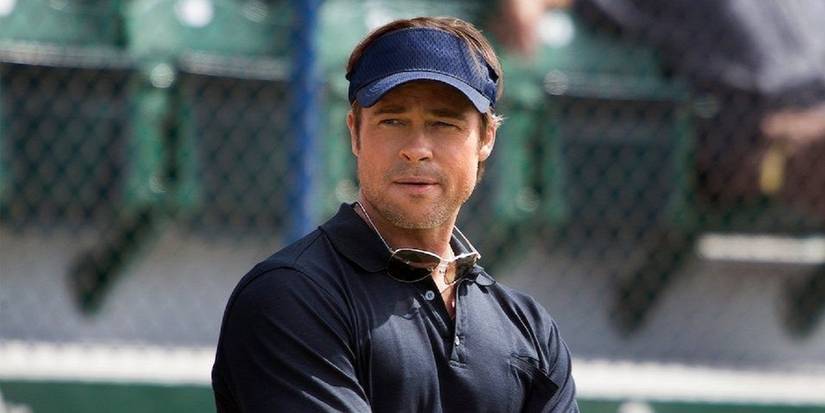
Brad Pitt as Billy Beane in Moneyball
A real-life sporting underdog story that proves you don’t necessarily need to win to make a significant impact, Moneyball tells the story of Billy Beane (Brad Pitt), the General Manager of the Oakland A’s baseball team, as he embraces a revolutionary, though controversial, philosophy of talent evaluation. Struggling to keep his financially hamstrung club competitive against the richer teams, he joins forces with economist and talent scout Peter Brand (Jonah Hill) to employ a stats-centric approach that shakes up the sport forever.
Enticing viewers with its wry wit and backs-against-the-wall narrative, Moneyball invests heavily in the emotional stakes of Beane and Brand’s efforts, riding every triumph and trial with an immersive gravitas that celebrates the outcasts who dare to dream. Its message of legacy over accolades is a testament to Beane’s enduring impact on the game, making Moneyball a true American classic that explores the beautiful game with all the rousing sentiment it commands and plenty of intelligence to boot.
8 'The Secret Life of Walter Mitty' (2013)

Walter Mitty (Ben Stiller) skates down a road in Iceland, the sun beaming over the hill behind him in 'The Secret Life of Walter Mitty' (2013).
Daydreaming can provide an uplifting escape, but true happiness and peace are seldom found in fantasizing. Ben Stiller’s brilliant iteration of The Secret Life of Walter Mitty is a wonderful realization of this idea. Following the titular Walter Mitty, an introverted negative assets manager at Life magazine, as his fantasies of romance and adventure begin to subside when he is thrust on a rollicking, globe-trotting adventure, the underrated 2013 gem is an inspiring story of self-discovery and snow leopards.
Armed with an endearing, off-kilter sense of comedy and a surprisingly poignant exploration of the value of individuals in workplace environments, The Secret Life of Walter Mitty enchants viewers with both joyous whimsy and piercing pathos. It is a relatable and rousing story of overcoming self-imposed monotony and escaping the drudgery of everyday life, an introvert’s ode to attaining self-worth and confidence by embracing the wonder of the world in all its infinite glory.
7 'Remember the Titans' (2000)
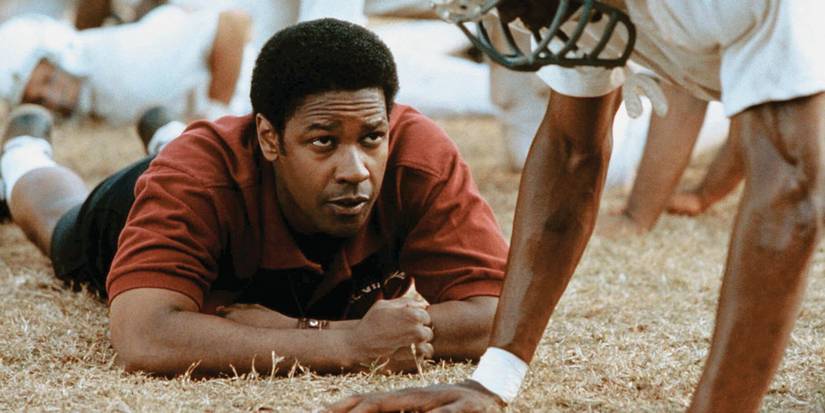
Denzel Washington lies on his stomach on the ground coaching a football player in Remember the Titans.
A piercing marriage of sporting triumph and social criticism regarding America’s history of racism, Remember the Titans is an emotionally soaring and universally beloved classic defined by its powerhouse performances. Denzel Washington stars as Herman Boone, the newly appointed coach of a high school football team in early '70s Virginia, who spearheads the integration between the all-white and all-black schools. Conflict initially runs rife in the team, and outcry abounds from the public, but Boone’s philosophy on football and tough-love humanity serves as a rousing catalyst for unity.
While some critics were quick to dismiss the film as a manipulative and contrived melodrama, audiences were far more welcoming of the biographical picture’s stirring story of unity overcoming prejudice. Remember the Titans uses the inherent excitement of football to complement every emotional beat of the characters’ progression, crafting a winning triumph of cinema that, in all its corny and cheesy glory, overwhelms with its heartfelt, hopeful message of equality.
6 'Mr. Smith Goes to Washington' (1938)
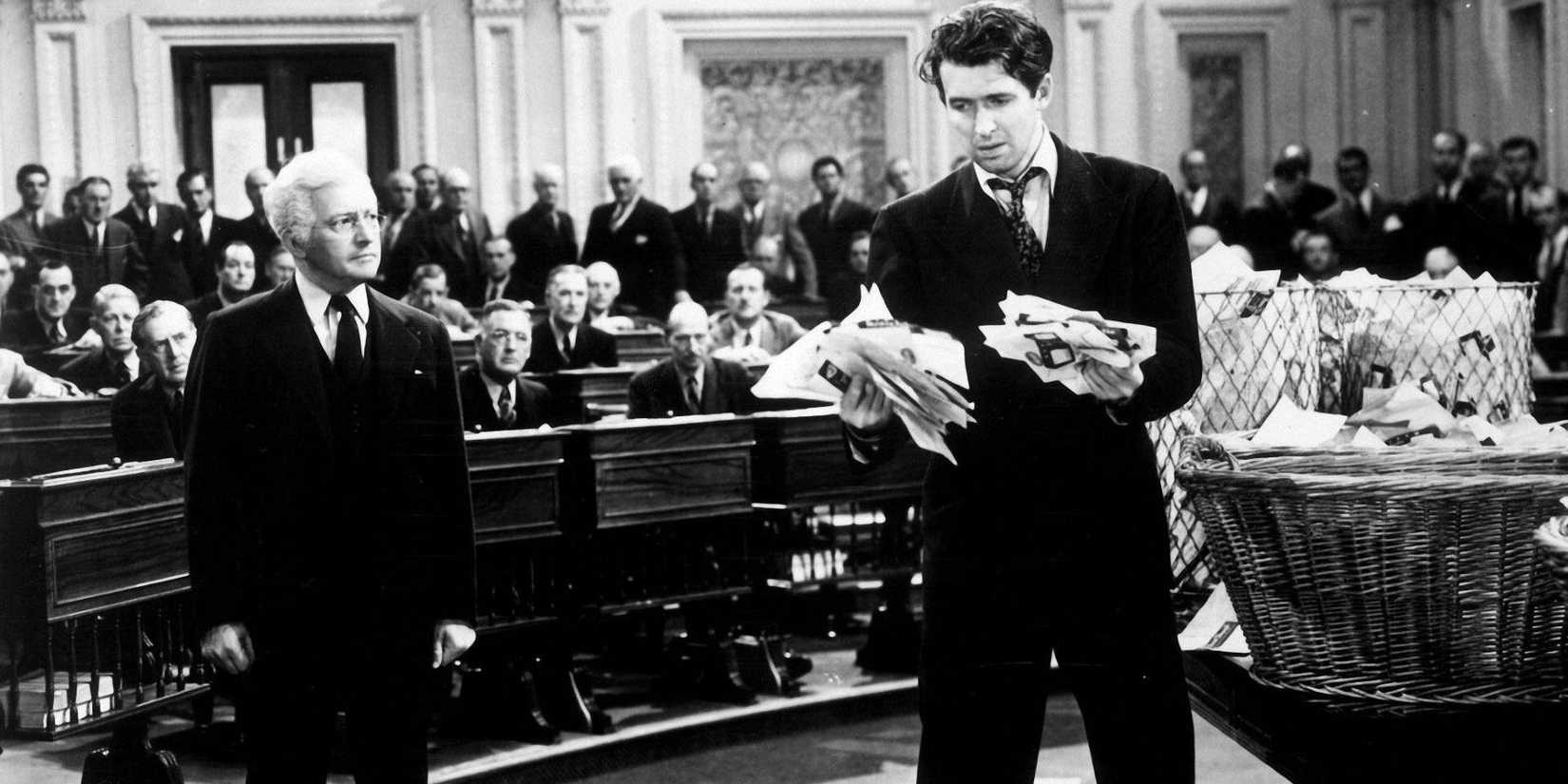
James Stewart hold fake letters in his hands as he speaks to government.
In a very literal sense, Mr. Smith Goes to Washington is a simple story about a newly-crowned senator’s efforts to secure funds to build a boys’ campsite. In a more earnest sense, it is about the necessary conviction and resolution of idealism to stand against the scourge of political corruption. Buoyed by the impeccable collaboration of Frank Capra and James Stewart, its hopefulness is the epitome of the impassioned defiance of an optimist.
While details within the picture may have dated, its emphasizing of the ordinary, everyman qualities of Mr. Smith, as the antithesis to the soullessness of politics, continues to ring true today, as does Stewart’s stirring faith in the goodness of humanity. His performance in the famous filibuster sequence remains one of the most rousing and inspiring feats ever put to screen, a moving display of hope standing against political villainy that encapsulates the glory of the movie at large.
5 'Hidden Figures' (2016)
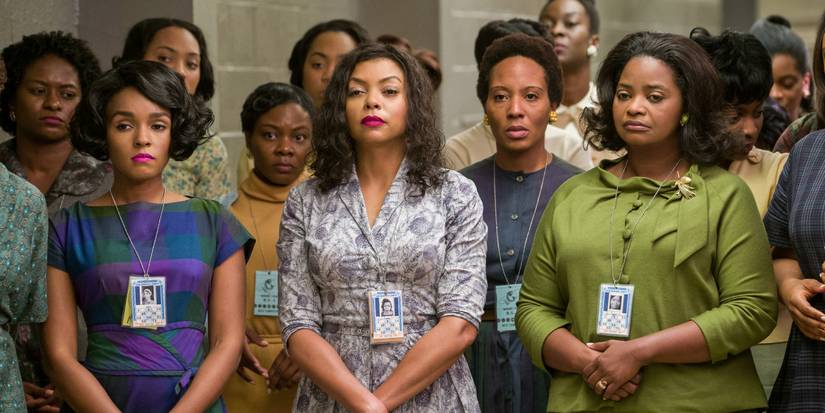
Mary Jackson (Janelle Monáe), Katherine Goble Johnson (Taraji P. Henson), and Dorothy Vaughn (Octavia Spencer) stand before a small crowd of black women in a NASA hallway.
An underrated gem of 2010s cinema, Hidden Figures excels as a testament to the scientific excellence of the space race and the genius of many unrecognized heroes who were behind it, while also serving as a mournful ode to all who have endured discrimination. It follows Dorothy Vaughn (Octavia Spencer), Katherine Goble Johnson (Taraji P. Henson), and Mary Jackson (Janelle Monáe), three female African-American mathematicians who work for NASA, playing a pivotal role in an operation to launch astronaut John Glenn (Glen Powell) into orbit.
It embraces the wonder and awe of the space race, realizing the excitement and hysteria of the era with an inviting sense of warmth that celebrates the unseen greatness of the time with tremendous gratitude and grace. Hidden Figures acknowledges the racial and sexist vilification of the era, and addresses it emphatically, but it never allows the triumphs of its three main characters to be overshadowed by this focus. The result is an inspiring story of real-world heroics.
4 'The Lord of the Rings: The Return of the King' (2003)
The astonishing epic that brings about a glorious conclusion to what is perhaps the greatest trilogy cinema has ever seen, The Lord of the Rings: The Return of the King is a near-perfect film, an awe-inspiring feat of filmmaking that wields a mighty emotional power. This quality can be seen in its most rousing scenes, be it the stirring speeches of King Théoden (Bernard Hill) and Aragorn (Viggo Mortensen) as they lead their charges into battle or Samwise Gamgee’s (Sean Astin) famous “but I can carry you” moment.
Coasting on the endearing charms of its two predecessors, especially in regard to the personal relationships they establish, The Lord of the Rings: The Return of the King delivers a faultless meshing of monumental stakes, dazzling spectacle, and searing moments of character-driven emotion to offer a deeply moving and mesmerizing viewing experience. Complemented by its expansive yet earned runtime, Howard Shore’s impeccable score, and some of the best special effects of all time, the film is a breathtaking triumph of filmmaking that flaunts its focus on themes like friendship, honor, courage, and good prevailing over evil as its defining quality.
3 'Rocky' (1976)

Rocky Balboa (Sylvester Stallone) in the ring fighting Apollo Creed (Carl Weathers) in Rocky (1976)
As evinced by a couple of entries on this list alone, sports movies have a unique ability to stir the emotions. Still, perhaps none are as motivating and emotionally-charged as 1976’s classic Rocky. It follows the titular Rocky Balboa (Sylvester Stallone), a struggling bar-room brawler from Philadelphia who gets the most unlikely shot at a title when Apollo Creed (Carl Weathers), the heavyweight champion of the world, offers him the chance to fill in for an opponent who had to withdraw from the bout.
The bruising brutality of the boxing match is itself captivating, but it is given a rousing depth by Rocky’s endeavor to earn respect not by beating Creed—a task he himself deems to be impossible—but by becoming the first fighter to last 15 rounds against him. Buoyed by some incredibly smart writing decisions, Bill Conti’s immortal score, the absorbing drive of the underdog story, and its unforgettable feel-good ending, Rocky is a true masterpiece of cinema. Even with some lackluster sequels, it remains one of the most iconic and inspiring movies of all time.
2 'Braveheart' (1995)
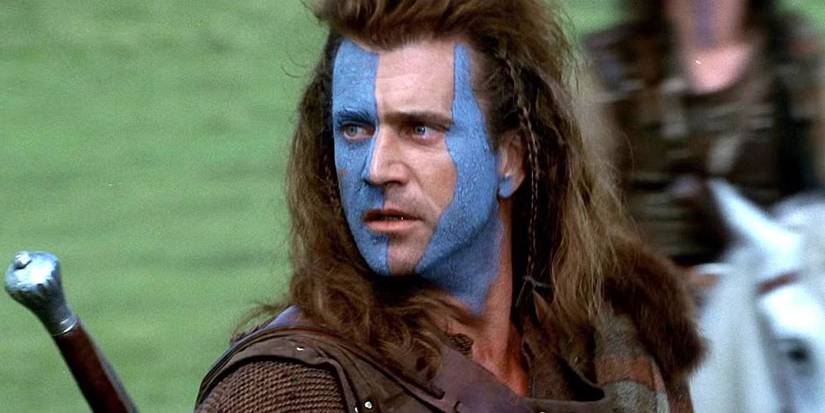
Mel Gibson with long hair and blue face paint on a battlefield in Braveheart.
Combining the enormous spectacle historical epics are renowned for with an appetite for brutal battle sequences and a sharp sense of defiance against tyranny and injustice, Braveheart is a picture as fiercely stirring as it is legendary. Set in 13th-century Scotland, it follows rebel William Wallace (Mel Gibson) as he leads a war for independence against King Edward I (Patrick McGoohan) and the English forces occupying the land in the aftermath of his wife’s execution.
Its story may not be subtle in its endeavor to play on the audience’s notions of injustice and oppression, nor is its attention to historical detail particularly sharp, but Braveheart delivers as a spectacle of impassion, fiery emotional might. Every rallying cry for freedom is iconic because of the feeling of energized spite that it rallies deep in the stomach of viewers, just as every victory in battle is a swift act of fist-pumping retribution that may rid the Scots from the English. Encapsulating many nations’ fight for independence in Wallace’s story of heartache and vengeance, Braveheart rouses with its stirring story of resistance and reckoning as much as it does with its immense scope and its brilliant battles.
1 'The Shawshank Redemption' (1994)
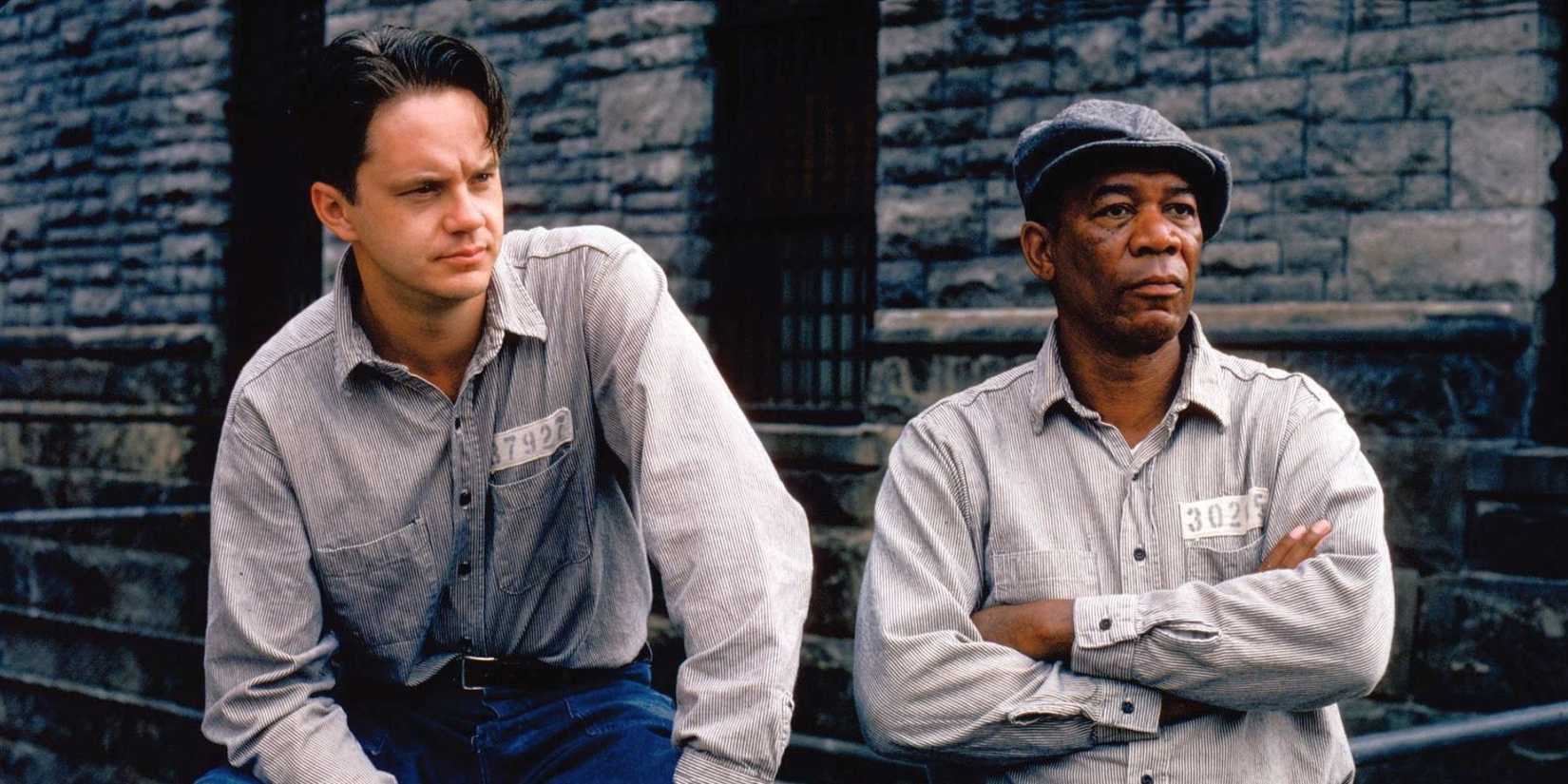
Andy Dufresne and Ellis Boyd "Red" Redding sit while in prison uniforms in The Shawshank Redemption.
Such is its legacy as one of the most profoundly powerful and moving masterpieces in the history of cinema, it is almost impossible to fathom that The Shawshank Redemption ended its theatrical run as a cataclysmic box office failure. Based on Stephen King’s short story, it follows meek though sly banker Andy Dufresne (Tim Robbins) as he is imprisoned for the murder of his wife and her lover. Held in Shawshank State Prison, he forges a friendship with contraband smuggler, Red (Morgan Freeman), works under the shady warden’s instruction, and endures the hardships of incarceration, all while maintaining his innocence concerning the murders.
Stirring with its focus on such themes as friendship, hope, and the resilience of the human spirit, The Shawshank Redemption has become one of the most beloved classics in Hollywood history, a rousing and resonant display of camaraderie and companionship that has touched millions the world over. Bolstered by its exceptional performances, Frank Darabont’s deft and considered direction, and Roger Deakins’s typically sublime cinematography, the picture stands as an emphatic highlight of emotionally-charged storytelling, and as one of the finest movies to have ever graced the screen.











































































































